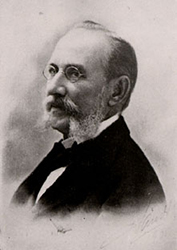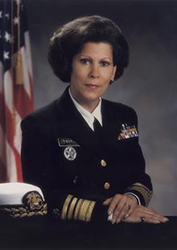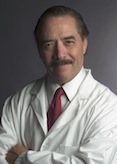The 30 days between September 15th and October 15th are observed as Hispanic Heritage month. Hispanics make up the fastest growing segment of the American population, and the many contributions that have been and continue to be made to our culture and society are something to celebrate! Following are only but a few examples of advancements made and recognition earned by Hispanics in the health care field.
 Carlos Juan Finlay
Carlos Juan Finlay
1800s physician and scientist Carlos Juan Finlay hailed from Havana, Cuba, which had been hit by cholera and yellow fever numerous times. His theory that cholera was a waterborne disease was rejected at first but later proven true. A predominantly tropical and sub-tropical hemorrhagic disease, Yellow Fever was thought to be spread by person-to-person contact. Dr Finlay spent many years researching until proving his theory that it was instead spread by a particular type of mosquito. Dr. Finlay’s insight and perseverance earned the respect of the United States Army Yellow Fever Commission.
 Antonia Novello
Antonia Novello
Born in Fajardo, Puerto Rico, Dr. Antonia Novello was the first woman and the first Hispanic chosen as Surgeon General of the United States, the highest ranking doctor in the U.S. government. President George H.W. Bush appointed her to her position in 1990. Much of her work as surgeon general focused on social ills and their effect on young people. She campaigned against underage drinking and to discourage tobacco use by young people, as well as promoting immunization and injury prevention programs for children. One workshop she headed lead to the creation of the National Hispanic/Latino Health Initiative. After her tenure ended Dr. Novello went on to hold positions with UNICEF, Johns Hopkins School of Public Health, and as Commissioner of Health for the State of New York.
 Eloy Rodriguez
Eloy Rodriguez
Medicinal biochemist Eloy Rodriguez is a professor at Cornell University whose love of science from an early age has brought him to some exciting discoveries in “zoopharmacognosy”, animal self-medication with plants. He has developed undergraduate research programs in pharmacognosy, pharmacology and nutritional biochemistry for treatment of type 2 diabetes, breast cancer and pancreatic cancer. Professor Rodriguez is also passionate about bringing the underrepresented Hispanic men and women into the medical fields, and in part through his encouragement and mentoring many of whom are in the medical field today, whether in research, as medical doctors, biologists or environmental ecologists.
A large part of America’s strength has come as a direct result of the diversity of those who make up the communities, both social and professional. Let these 30 days set aside to recognize and celebrate the accomplishments of Hispanics in America be only the beginning of a continuing discussion.